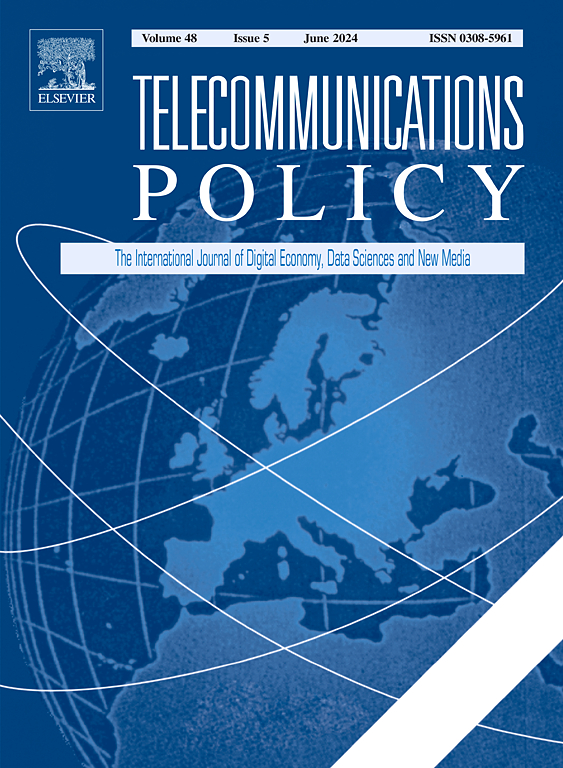数字化与中东和北非地区的经济增长:来自面板数据分析的证据
IF 6.4
2区 管理学
Q1 COMMUNICATION
引用次数: 0
摘要
本研究利用2001-2023年期间来自15个国家的平衡面板数据调查了数字化对中东和北非地区经济增长的影响。采用综合计量经济学方法——包括固定效应、随机效应和通过系统GMM (xtabond2)进行的动态面板估计——分析表明,通过互联网普及率、信息通信技术投资和数字技能发展衡量的数字化转型对经济增长具有统计学上显著的积极影响。值得注意的是,互联网使用与教育之间的互动凸显了人力资本在提高数字基础设施回报方面的放大作用。结果还突出了巨大的跨国差异:海湾国家受益于先进的基础设施、制度成熟度和有凝聚力的数字战略,而脆弱国家则面临着限制数字技术扩散和有效性的结构性约束。通过将基础设施、教育和治理整合到一个统一的实证框架中,该研究扩展了之前的全球证据(如Vu(2011)),并为数字主导增长的机制提供了特定地区的见解。研究结果呼吁制定多维政策战略,将技术投资与教育改革、机构加强和区域合作结合起来。随着全球数字经济的发展,中东和北非国家必须利用这些协同效应,实现包容、有韧性和创新驱动的发展。本文章由计算机程序翻译,如有差异,请以英文原文为准。
Digitalization and economic growth in the MENA region: Evidence from panel data analysis
This study investigates the impact of digitalization on economic growth in the MENA region using balanced panel data from 15 countries over the period 2001–2023. Employing a comprehensive econometric approach—including Fixed Effects, Random Effects, and dynamic panel estimation via System GMM (xtabond2)—the analysis reveals that digital transformation, measured through internet penetration, ICT investment, and digital skills development, has a positive and statistically significant effect on economic growth. Notably, the interaction between internet usage and education underscores the amplifying role of human capital in enhancing the returns to digital infrastructure. Results also highlight substantial cross-country disparities: Gulf countries benefit from advanced infrastructure, institutional maturity, and cohesive digital strategies, while fragile states face structural constraints that limit the diffusion and effectiveness of digital technologies. By integrating infrastructure, education, and governance into a unified empirical framework, the study extends prior global evidence—such as Vu (2011)—and offers region-specific insights into the mechanisms of digital-led growth. The findings call for multi-dimensional policy strategies that combine technological investment with educational reform, institutional strengthening, and regional cooperation. As the global digital economy evolves, MENA countries must leverage these synergies to achieve inclusive, resilient, and innovation-driven development.
求助全文
通过发布文献求助,成功后即可免费获取论文全文。
去求助
来源期刊

Telecommunications Policy
工程技术-电信学
CiteScore
10.80
自引率
12.50%
发文量
122
审稿时长
38 days
期刊介绍:
Telecommunications Policy is concerned with the impact of digitalization in the economy and society. The journal is multidisciplinary, encompassing conceptual, theoretical and empirical studies, quantitative as well as qualitative. The scope includes policy, regulation, and governance; big data, artificial intelligence and data science; new and traditional sectors encompassing new media and the platform economy; management, entrepreneurship, innovation and use. Contributions may explore these topics at national, regional and international levels, including issues confronting both developed and developing countries. The papers accepted by the journal meet high standards of analytical rigor and policy relevance.
 求助内容:
求助内容: 应助结果提醒方式:
应助结果提醒方式:


